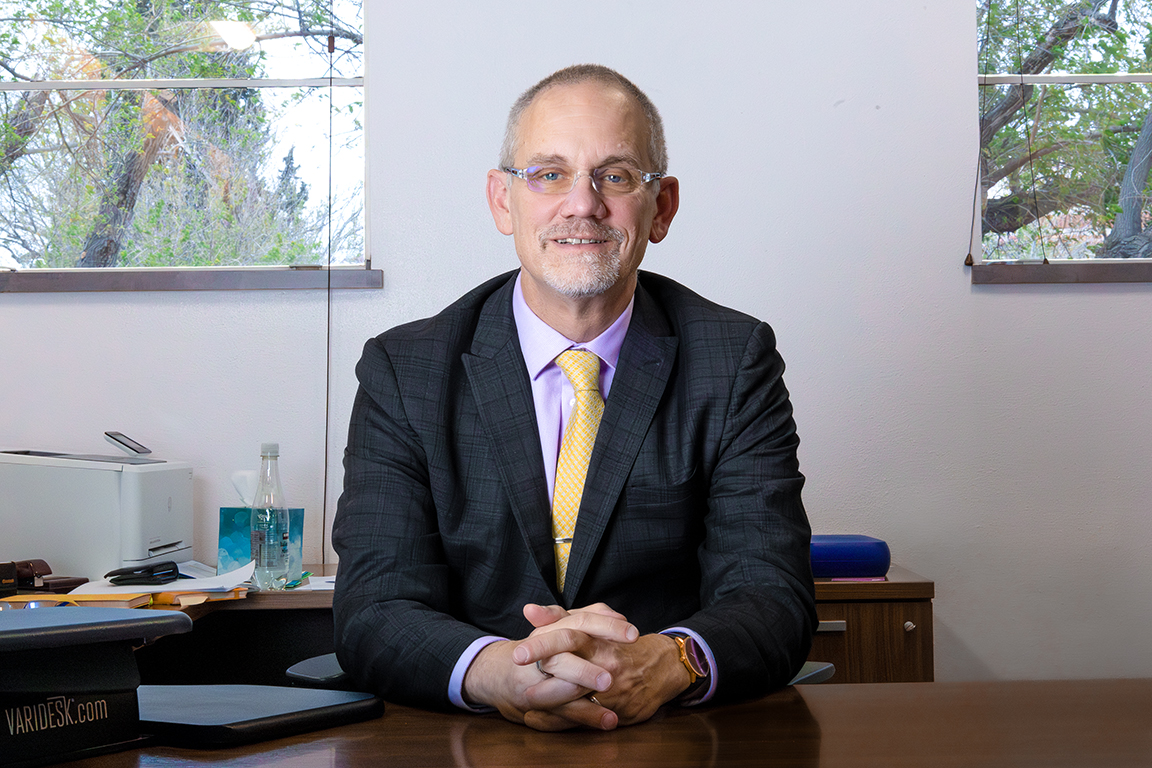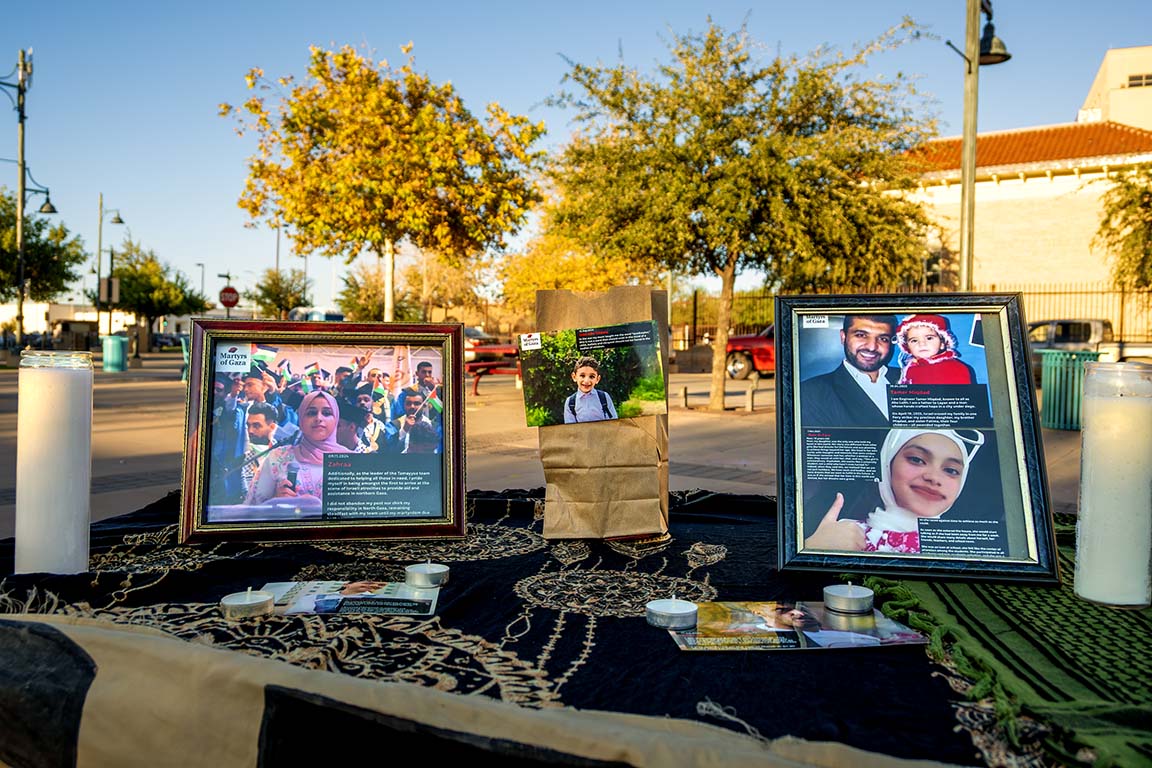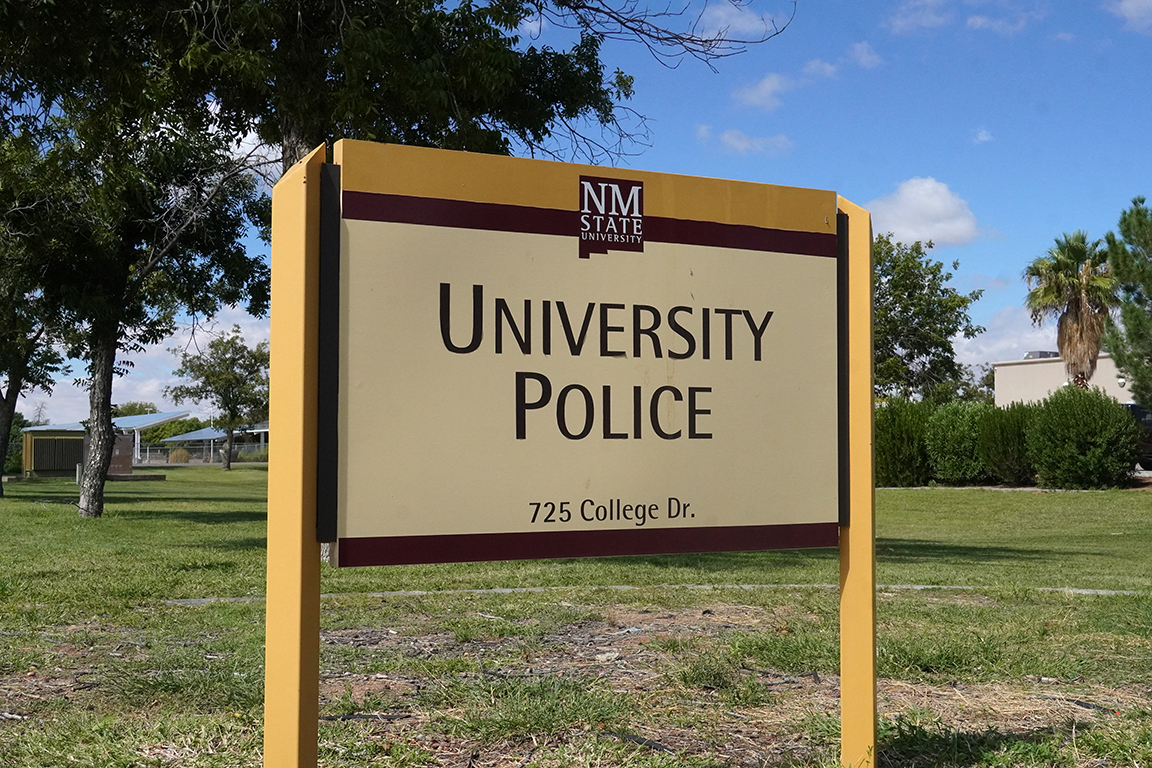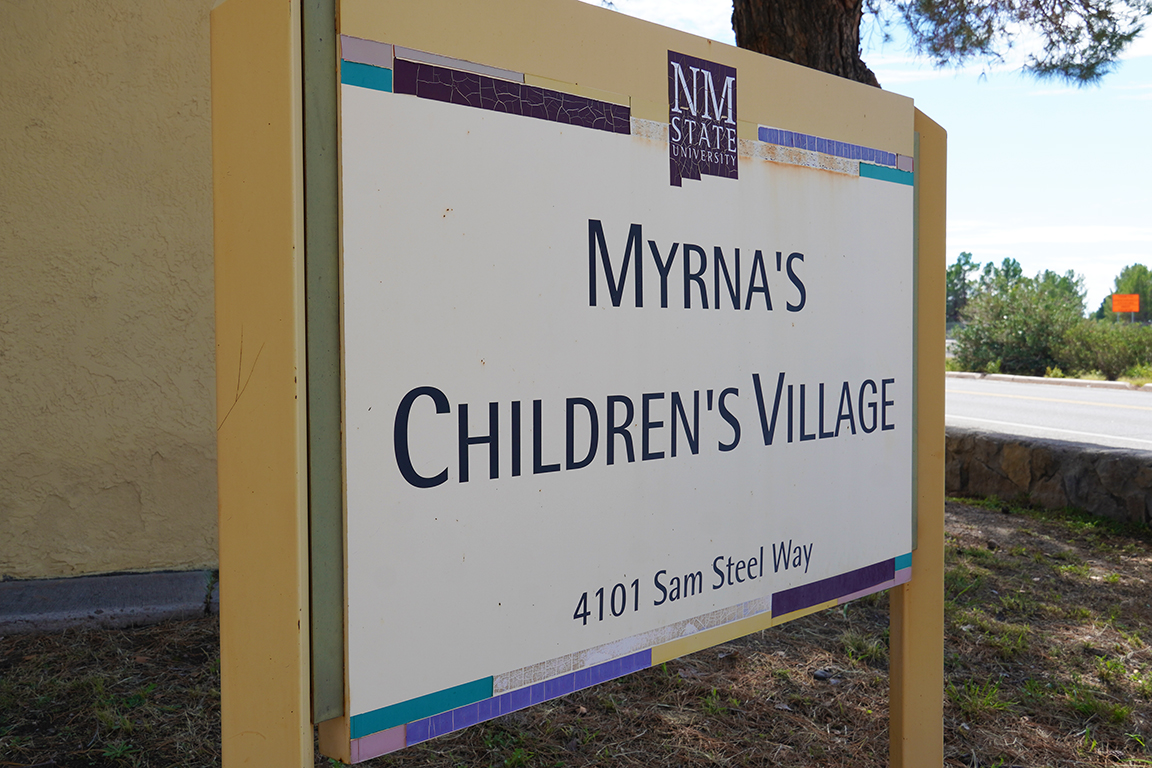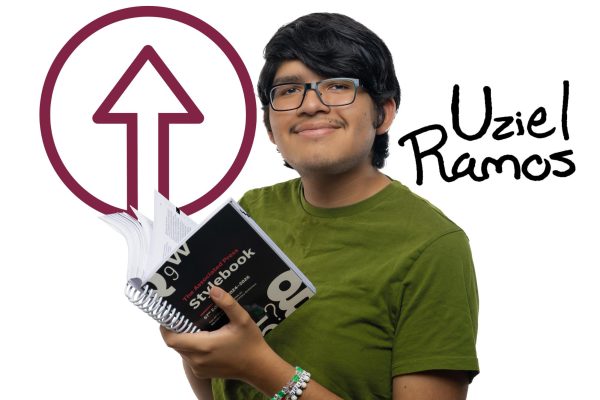On Sept. 19, 2024, the NMSU Board of Regents voted to select Valerio Ferme as former Interim President Monica Torres’ successor. As his term began on Jan. 1, 2025, Ferme thought about what he sees in NMSU, how he wants to change it, and how some of its institutional values will stand in the current political climate.
Ferme earned his undergraduate degrees in biology and religious studies at Brown University, his master’s degrees in comparative literature and Italian studies from Indiana University, and a Ph.D. in comparative literature from the University of California-Berkeley. Prior to the NMSU 2024 presidential search, he was the Vice President of Academic Affairs and Provost at the University of Cincinnati. Ferme explained that his familiarity and experience with public education throughout the Western United States compelled him to apply for the role of NMSU’s president.
“I spent almost 20 years at the University of Colorado, then two years at Northern Arizona University,” Ferme said. “I already was familiar with the region, and I had known New Mexico before becoming president. I have traveled to White Sands National Park a lot, to Acoma Sky City, Raton, and many other places all over the state. So, I knew what I was getting into.”
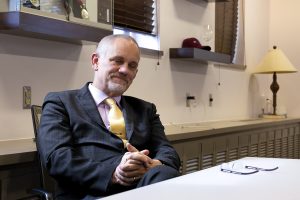
Because of prior experience at the Northern Arizona University, Ferme said that he felt he had learned a lot to become the next leader of a multicultural student body.
“. . . at Northern Arizona, there was a very strong connection to Native American culture because of the presences of communities like the Hopi, Zuni, and Navajo,” Ferme said. “From that, I learned you must be respectful of other cultures and traditions.”
To Ferme, NMSU’s origins as a land-grant university gives it the potential to not just improve but further grow into an even more influential institution in the region.
“As a land grant institution, we have the mission to provide education for the students of our state and its different communities,” Ferme said. “One of the very first things I did before I even officially assumed the office of president was travel to different agricultural research centers and meet with extension officers. Additionally, by figuring out how to rework our systems, which have been a little bit out of hand, I think NMSU is better able to contribute a lot of wealth and health to the state.”
In response to the Trump Administration’s cutting of funds to various educational institutions, Ferme said a committee was organized to assess the effects these developments will have on Hispanic-serving institutions, or HSIs, like NMSU.
“At 58% of its population being Hispanic, our university is a majority minority institution. But even as a majority, our institution needs to bring and give opportunities to that community,” Ferme said.
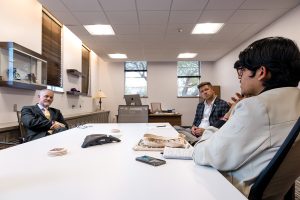
Throughout the U.S., there have been cases involving the revocation of international student visas and the detainment of some over their ideological affiliations, raising alarms about freedom of speech violations. Six NMSU international students have had their visas revoked as of April 10, an NMSU spokesperson confirmed. In the event students are arrested at NMSU for these reasons, Ferme explained that he will be consulting with his administrative staff as well as with the student body.
“So, I think first of all, I would want to know what the situation is,” Ferme said. “Secondly, I would consult with my team to help me make decisions as well. But I would also consult with student leadership and make sure I understand student concerns, so that we can together find solutions that will preserve those first amendment rights.”
When reflecting on what legacy he wants to leave behind for future presidents, Ferme said that he wanted to create not just a functionally better academic institution, but one where students feel fulfilled by and thankful.
“. . . I think creating a culture of gratitude is really important,” Ferme said. “I do not fully know if we have that yet here, but I want campus to be somewhere where people feel not just grateful for what the institution is doing for them, but are also then, in turn, compelled to do things for other people in the world.”


